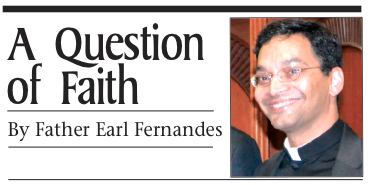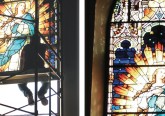What keeps me Catholic? The violence of love
Let’s be honest. It’s easy to be cynical and jaded about the state of the world today. From the front page news it seems that all there is out there is a daily, ongoing, endless stream of violence. Depressingly, rather than be an antidote to it, religion seems to further fan the flames. As current events recently reminded us, what was once a world away – Paris – is now taking place at our doorsteps – Colorado and San Bernardino.
Despairing over this sad state of affairs I happened to pass my bookshelf. One title caught my eyes – The Violence of Love. Two words are paradoxically and jarringly brought together. The book contains the homilies, letters, interviews, and articles of the martyred and recently beatified Archbishop of San Salvador Oscar Romero.
Shortly after his appointment in 1977, with the assassination of his long-time friend Jesuit Rutilio Grande, Archbishop Romero was thrust into the social and economic divide of El Salvador. Long considered safe by both those in civil and religious authority, he began to speak with a prophetic voice that privileged the poor.
Accused himself of inciting violence, Archbishop Romero replied, “We have never preached violence, except the violence of love, which left Christ nailed to a cross, the violence that we must each do to ourselves to overcome our selfishness and such cruel inequalities among us. The violence we preach is not the violence of the sword, the violence of hatred. It is the violence of love, of brotherhood, the violence that wills to beat weapons into sickles for work.”
Many like to speak of his story as one of conversion on behalf of justice. Archbishop Romero himself spoke of it as an evolution in his growing discipleship with Jesus. Born in poverty, his priestly training and ministry removed him for some years from his roots. In the end, however, embracing the violence of love and solidarity with the oppressed, Romero became one with the countless and nameless victims of the violence of hate.
Though easy to dismiss it should never be forgotten that what killed Archbishop Romero, as well as Jesus, wasn’t so much a person, but a system. So much of the violence and sin that takes place today isn’t done by individuals as much as by economic, educational, social, and political institutions built into society. Yes, a bullet was fired from the gun of a lone assassin. But Romero’s witness against and challenges to unjust social structures, much like Jesus’, almost guaranteed his death by the violence of hate.
I recall here and invite you to listen to a song by the Dave Matthews Band. The title is “The Christmas Song.” It is far removed from the sappy and sanitized songs we often associate with this event. Rather, it is a summation of the gospel story of Jesus’ life and death. At one point in the song, Jesus asks the question, “Father up above, why in all this hatred do you fill me up with love…”
If there was ever anyone who lived out the violence of love it was Jesus. He met fear with hope; a fist with an open hand. Rather than resign himself to the current system of domination, Jesus imagined a new world sustained by solidarity – the Kingdom of God. Not unexpectedly, it cost Him his life – the violence of hate. Yet, it also led to His resurrection – the violence of love.
In his book, Tattoos on the Heart, Jesuit Father Greg Boyle shares stories of his years working in gang-plagued Los Angeles. One great truth that he learned was: “There is no force in the world better able to alter anything from its course than love.
Sustained by the living witness of Jesus in Jerusalem, Archbishop Oscar Romero in El Salvador, and Father Greg Boyle in Los Angeles, the violence of love keeps me Catholic.
Michael Daley, author of What Keeps Me Catholic, is a freelance writer and teacher at St. Xavier High School.













